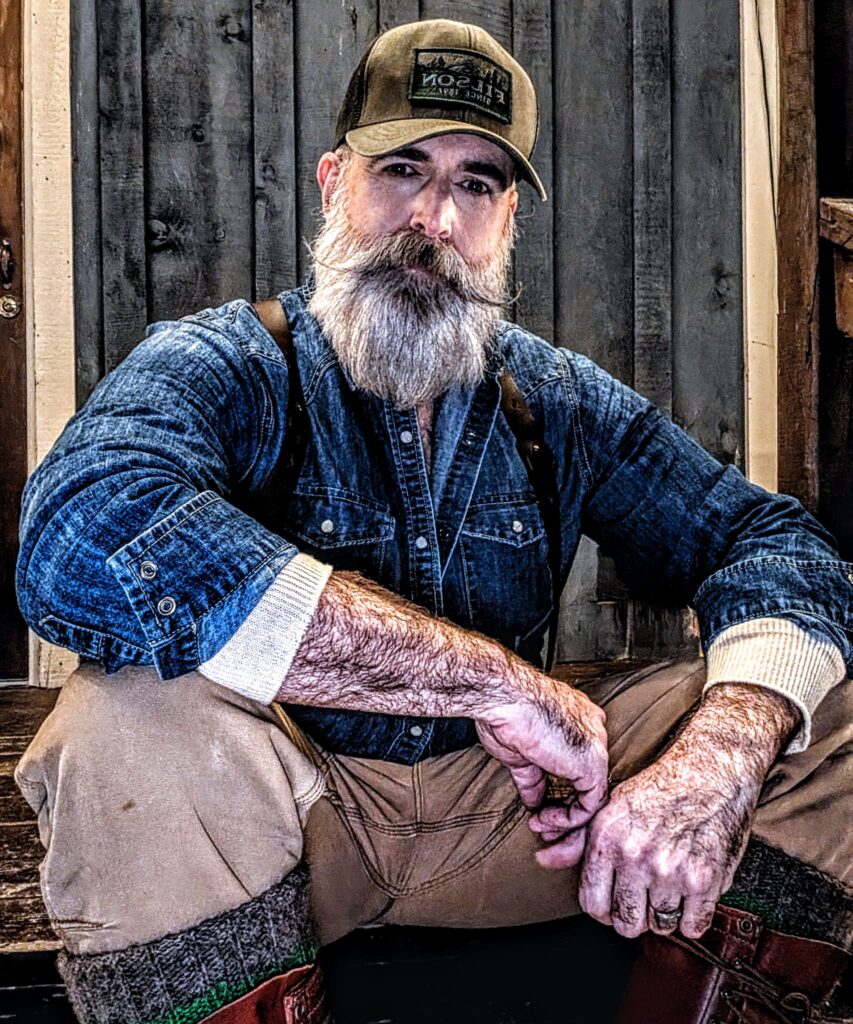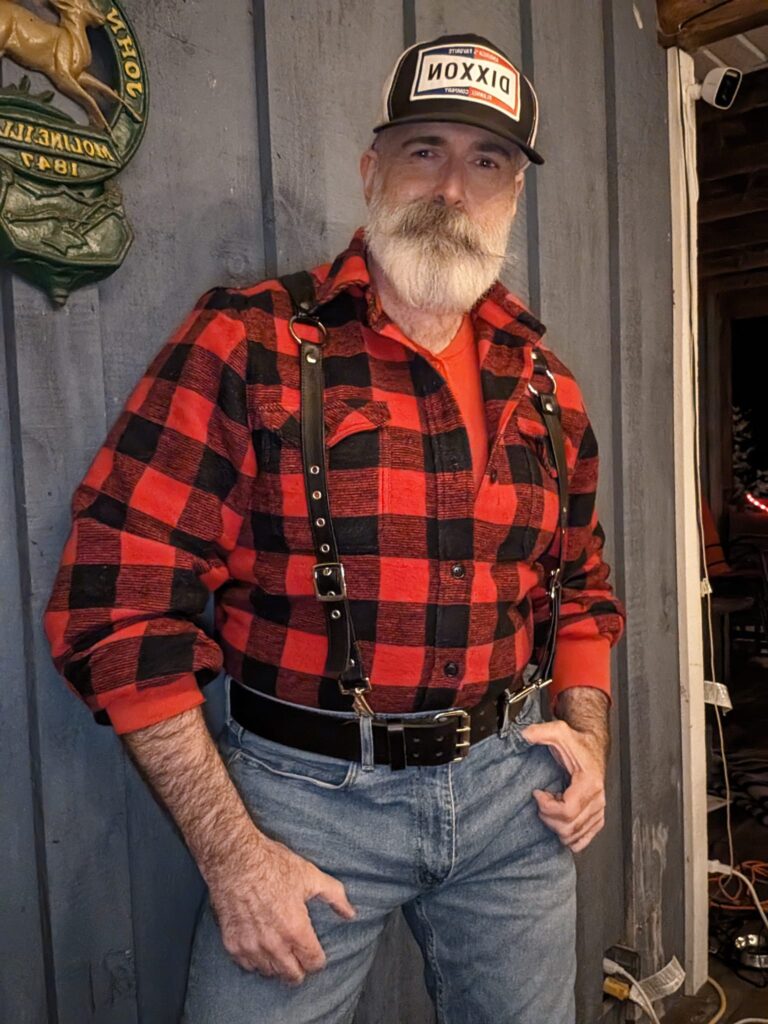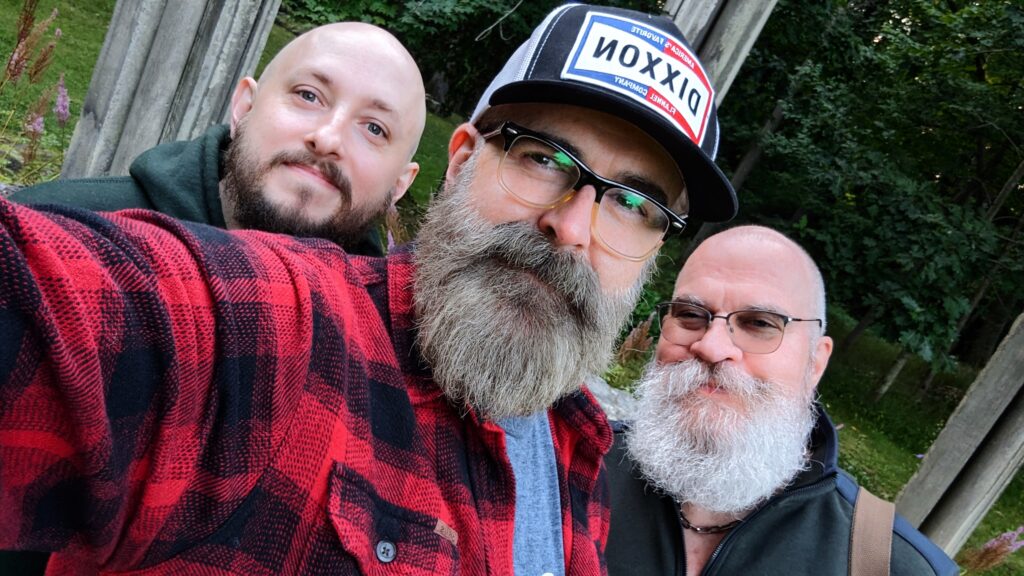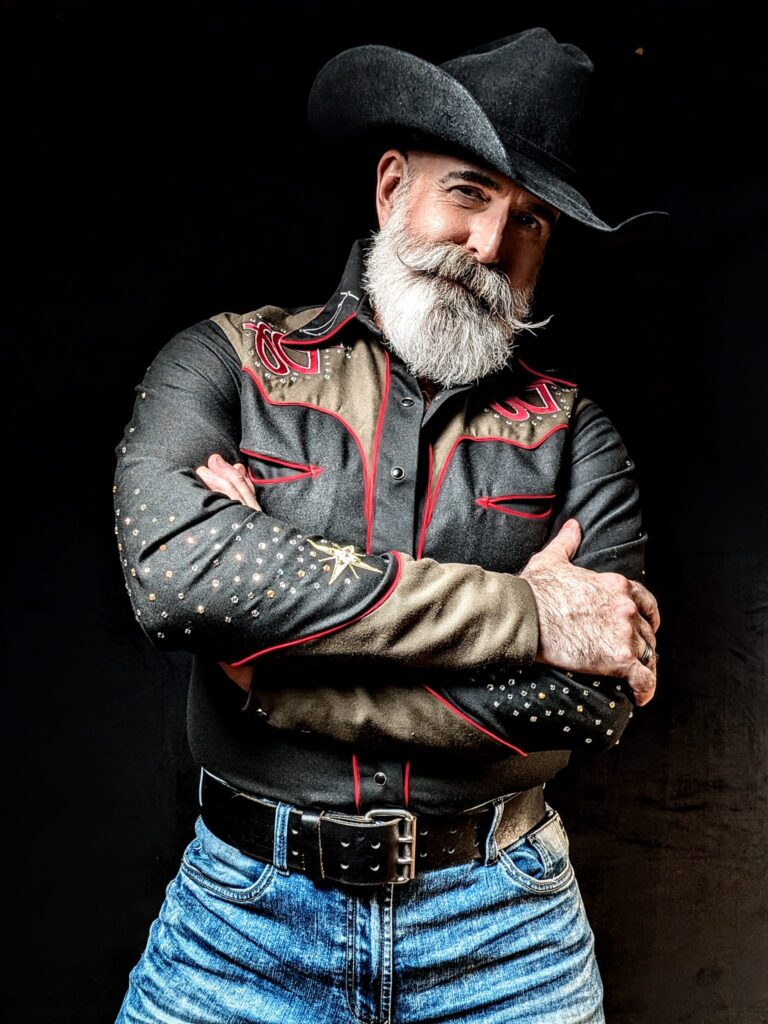
Drake Jensen on Music, Politics and Living with Ehlers-Danlos Syndrome
After recently going public with his Ehlers-Danlos diagnosis, Drake Jensen joins us for a candid discussion about how he has been coping, the state of politics, and his forthcoming album.
Drake Jensen has been one of the bear community’s favorite musicians since his debut album On My Way to Finding You in 2011. Since then, he has released four additional albums with his newest effort entitled Iconic coming your way in the fall of this year.
In advance of the highly anticipated record, he has released the single and video for “Lovers In a Dangerous Time”. The Bruce Cockburn cover resonates now, more than ever before, as political tensions rise in relation to the LGBTQ community, especially throughout North America.
The song and album mark a triumphant return to music for Jensen who has been very transparent with the public about his struggles with Ehlers-Danlos Syndrome (EDS); but as they say, you can’t keep a good man down. It gives me great pleasure to present our conversation to you below.

John Hernandez (JH): Tell us about how and why you came to record “Lovers In A Dangerous Time”
Drake Jensen (DJ): I was guest performer on one of the most prestigious trains that runs across Canada on a four-day trip going from Toronto to Vancouver. They asked me to learn a bunch of Canadian music, so my producer and I agreed to do some Anne Murray, Barenaked Ladies and this particular Bruce Cockburn song. A lot of the music we did on the train ended up being recorded during the pandemic. So, strangely enough, it was recorded three years ago but finally, here we are releasing it, and the message is as relevant as ever.
You guys down there (in the US) are in the throes of a really, really tumultuous political climate. The LGBTQ community seems to be under threat once again and things here, in Canada, are not much better. We have a very strong right conservative movement that’s taking over here. Liberals are losing their foothold because the Prime Minister has a very bad approval rating. It seems we’re going to end up with a conservative government here. It’s very, very scary.
JH: I completely understand your concern, things are pretty frightening everywhere as of late. Tell me about the video.
DJ: One of my partners, Michael, suggested we do it and then my other partner, Bobby, who is very technical, suggested we do it ourselves. We’ve worked with many different, excellent videographers through the years, but we decided to give it a shot. So, we ordered the stuff that I knew I was going to need to be able to light the video and I started to mess with it and did a couple of YouTube lighting tutorials. I figured the worst thing that could happen is that it didn’t live up to my standards at which point we would have to figure something else out. But when we finished it, I was like, “Oh my God, I can’t believe we did this ourselves!” And then I sent it to one of my friends/ videographers who had similar positive feedback.
JH: There is so much we are able to do ourselves nowadays and it truly is a beautiful video. And correct me if I’m wrong but the song will be part of an album called Iconic this fall, correct?
DJ: Yes! We’re looking to release the whole album and put together a little package of maybe a calendar with a CD and an 8×10 photo. I don’t do this all the time; but people have been asking for it. I’m going to put together pictures that I’ve done over the past few years for the calendar. I always know which pictures are most popular (laughs), it’s always evident what people like.
JH: And what else is going to be on Iconic?
DJ: It’s all covers of Canadian music. It’s got a mini tribute on it to Gordon Lightfoot, it has Anne Murray, Bruce Cockburn, Corey Hart, Lennie Gallant. It’s all iconic Canadian music, old stuff though, stuff that I grew up with.
JH: Sounds fantastic!
DJ: After that, my next record will be more modern, French pop stuff. I’m actually attending Berlitz Language Academy to learn the language. It’s going to take me about 3 months to become fluent. At the current time, I can already sing in French though. My husband Michael, my first partner of 17 years, is French Canadian, so we speak French here in the house, so that helps a lot.

JH: I’m sure it does! Truly Drake, this all sounds phenomenal, and I am happy to see you so hard at work on your music, especially in light of your recent health issues.
You have been very forthcoming about your diagnosis with Ehlers-Danlos Syndrome (EDS). Tell us about the journey to that diagnosis.
DJ: Well, I suppose it starts back when I was diagnosed with Hypermobility Syndrome at 24, which basically meant that all of my joints became super flexible. My whole body is still that way. During my younger years, it was great, I would be the party clown. I could get my hands up praying behind my back, up around my neck. I could twist my legs. This would be very entertaining for people at a party, so I did all kinds of stuff, but the doctor warned me to not do too much physical stuff, not to lift too many weights, because it would cause me to suffer when I got older.
And sure enough when I got to my 40s I developed chronic subluxation, where my bones actually moved out of place because the connective tissue was not holding my body together properly. You can think of it like a house with really bad nails in it. All of my joints have hypermobility, and I have a very high hyper mobility rating. As far as the medical system goes, the top score for the most hypermobile person is 9; I’m a 7. The older you get, the less hypermobile you become, but for me, I’ve remained extremely hypermobile, and it’s caused a lot of problems. I have chronic nerve pain that radiates, they call it small fiber neuropathy; and all of my bones and muscles and ligaments aren’t in the right place. They’re all rubbing up against one another in places they shouldn’t be.
I had no idea what was really happening with me, so one day I decided I was going to revisit this ‘hypermobility syndrome’ and see if it could help explain my ongoing symptoms. What came back to me was the website for the Ehlers-Danlos Society of North America. When I started to take a deeper dive into it, I literally had everything it was talking about.
What happens with this syndrome – not only is it a connective tissue disorder, but it starts affecting everything else because everything in your body is soft tissue. So, it can impact your eyes, your heart. Right now, I have a mitral valve prolapse in my left ventricle they’re being careful about. I have a condition called dysautonomia where my central nervous system is now malfunctioning. What that means is that since I have hypermobility in my neck, it causes my neck discs to hit up against my vagus nerve which causes paralysis in my digestive system and chronic heartburn and migraines.
And unfortunately, to make a bad joke, you know when you see a bear and your whole body gets a shot of adrenaline that makes you want to run? My autonomic nervous system, my peripheral nervous system, consistently causes that reaction because of this condition. My whole life has been like that. I’ve lived with severe chronic anxiety since I was conscious enough to know what anxiety was. My parents would take me to psychiatrists and psychologists and give me anxiety meds. They tried everything and nothing would work, and they couldn’t figure out why I wasn’t responding to anything. Turns out it was because of my hypermobility and nothing mental at all.

JH: Wow, I was familiar with the hyper flexibility associated with Ehlers-Danlos but not all these other symptoms. Did that initial doctor from your 20’s miss it and misdiagnose you?
DJ: It wasn’t missed, because when you’re younger and hypermobile, you’re not having the chronic back pain that I have now or any of the other major symptoms that signify EDS. Also, as the disease progresses, not everyone who’s hypermobile is going to develop this. It’s a genetic condition, there’s an amino acid missing in the protein that causes the synthesis of your ligaments. There’s something missing in mine, so mine’s not synthesizing properly, I’m too stretchy.
And because I’m hypermobile, my brain constantly gets a signal that everything is moving too much, so my brain sends a message to my central nervous system to tighten everything up causing constant stiffness and chronic pain in my body.
JH: And what is the treatment?
DJ: The number one treatment for Ehlers-Danlos is rigorous physiotherapy. I do 1.5 to 2 hours of physio a day. The goal is to make your body lean and strong, especially around the center. They also just started me on a new medication that’s hopefully gonna help; it takes up to six to eight weeks to get in your system. I am starting to feel its effects thankfully.
JH: What do you want people to know and understand about Ehlers-Danlos?
DJ: This is not an old person’s disease. I want to make sure everyone understands that because there are people in their 20s that have developed the symptoms that I have in my 50s. In a way I’ve been fortunate, I don’t have the worst kind of Ehlers-Danlos Syndrome.
Life is about challenging yourself. When this diagnosis was given to me, I looked at it like a gift, because it slowed me down enough to make me focus on the things that were important. It gifted me the body that I always wanted because it forced me to do what I was putting off all the time (the physio). I’m really happy about that and it’s also made me really dig into music because that’s the one thing that always made me feel better.
JH: That is an amazing attitude and outlook to have Drake.
DJ: For every negative thing that happens, there’s all these positive things on the other side of it. The mental health aspect is something you also have to work out. Many people with Ehlers-Danlos have very poor mental health because of the physical problems that trigger anxiety like in my case, but there’s also the feeling of the disability itself and the feeling of being alone.
The doctor has physically deemed me disabled. That was kind of hard to swallow, but I’m not disabled from singing. I’m not disabled from sitting here having a great conversation with you. The one thing that all of this has taught me is that remaining positive no matter what happens takes precedence over everything.

JH: It takes great mental fortitude to have such a good and positive outlook.
DJ: For years I was a very, very negative person. I was severely abused as a child, and it caused a lot of this. I’ve done the research. Experts in the UK have correlated this condition to severe child abuse which apparently can cause a genetic change while you’re growing that can cause this to happen.
Unfortunately, severe child abuse was a big part of my life. I’ve had to go back and I’ve had to reflect on that, and I’ve had to process a lot of terrible stuff. My husband Michael has been very patient with me and very very loving. We’ve had a tumultuous relationship at times because of me and my anxiety and the previous abuse. I’ve really had to dig in, and I’ll be honest, I was messy for a long time. It took me a long time to be able to realize that I needed to change, otherwise I was just going to be just like my father.
So, what did I do? I started taking in the small positive things, and then everything else around me, and I learned to be grateful.
Both my partners are the best people in the world. I have a support system which is beyond what most people have. There’s an awful lot of lonely people in the world today. We have become a society of ultimate connection and unfortunate disconnection. I’m one of those fortunate people that have two people constantly here for me all the time. I’m never ever by myself. I’ve never had to go through this by myself. That’s the one thing that I look at that I’m so incredibly grateful for, these two people that are in my life, my family. I manifest that gratefulness every day. Beyond that, I look at everything else I have. I look at everything, and I mean everything that I have, that I’ve always wanted, and the people that respect me and love me, and it’s made such a difference.
JH: That’s beautiful. Thank you so much for sharing your story with us Drake. Best of luck with the new album but above all I wish you health and wellness.
DJ: Thank you so much.















Drake Jensen superb entertaining singer. Love listening to all his music on Youtube, etc.